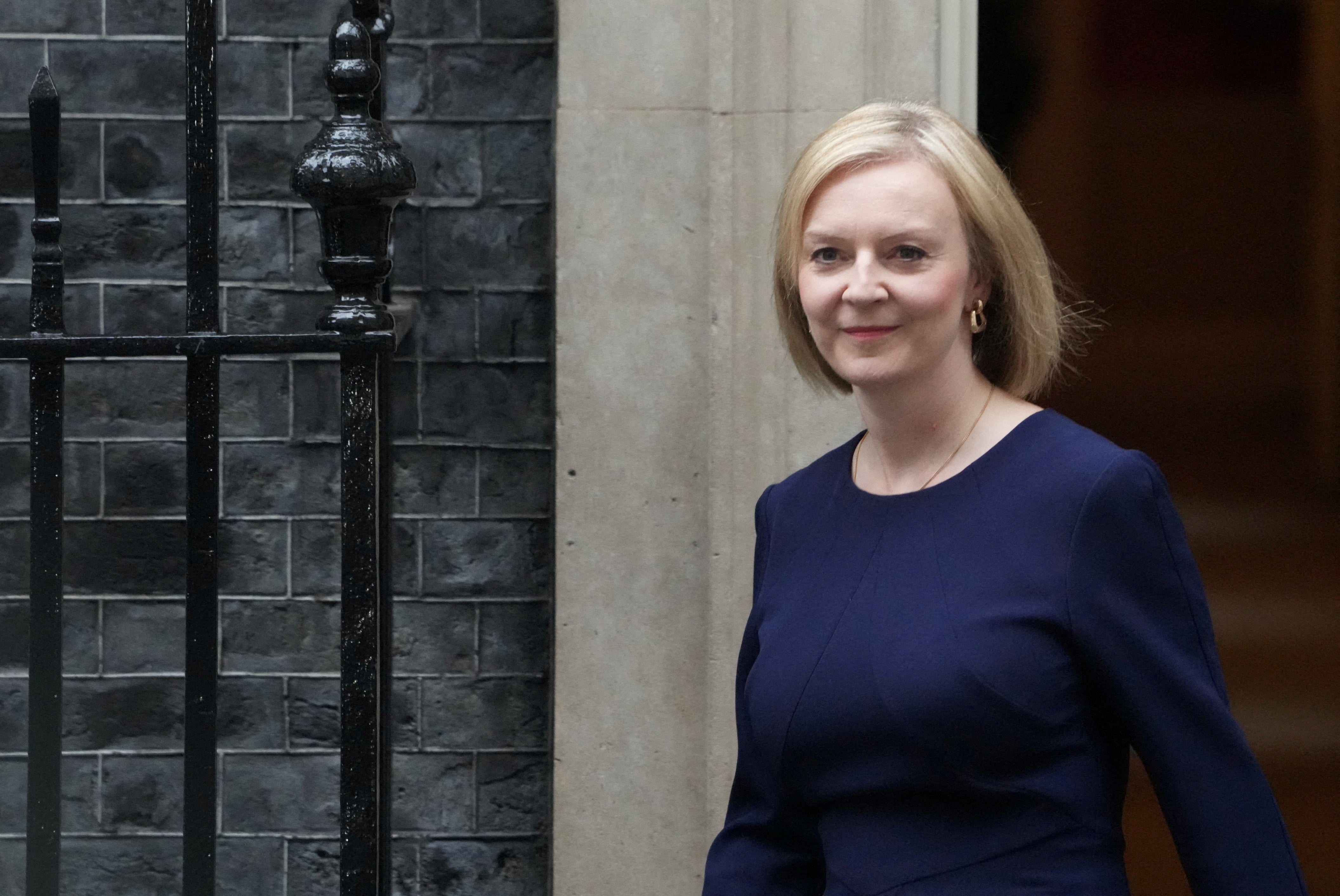We finally found Liz Truss – and immediately wished we hadn’t
The prime minister finally emerged from her bunker to give a series of interviews to local radio, writes John Rentoul


The search parties returned this morning, saying that they had found the prime minister. She had turned up in a studio in London, giving a series of seven-minute interviews to local BBC radio stations. This is quite a rigmarole, commonly engaged in by authors with a book to promote or politicians setting out their stall in advance of their annual party conference.
Liz Truss presumably agreed to it before the mini-Budget on Friday, and decided that it would be too embarrassing to cancel it – just as, on a larger scale, there is no question of her cancelling her party conference or, indeed, cancelling any of the mini-Budget measures or sacking her chancellor.
I don’t know if she really thinks she is like Margaret Thatcher, who resisted pressure for a U-turn on unpopular economic policy in 1981, or if she simply recognises how disastrous it would be to admit she got it wrong. How much more disastrous, that is, than the cloud of rubble and dust already engulfing her three-week-old government.
She had a message, and it wasn’t a terrible one. The government is about to intervene in a big, bold way, starting this weekend, to help people with the cost of their gas and electricity bills this winter. But she just couldn’t get it across. She had blown up any hope of conveying a positive story by unexpected extra tax cuts, mostly for the better-off, paid for by even more borrowing.
Kwasi Kwarteng had thrown more explosives into the conflagration on Friday by refusing to ask the Office for Budget Responsibility to give its opinion; by failing to announce a single revenue-raising measure; by omitting any plan to restore the public finances to sustainability; and by the jaw-jutting insensitivity of his announcement of the abolition of the top income tax rate with an “everybody hates us and we don’t care” attitude. The markets – run by socialist bankers dismayed that their bonuses should be uncapped, presumably – took fright.
Then the chancellor went on TV at the weekend to say there were more tax cuts to come. And the markets took fright some more, putting up interest rates on government debt, threatening pension funds with bankruptcy and forcing the Bank of England to print more money.
So the big question to Truss this morning, asked more than once, was: you have made things worse by your actions, haven’t you? And the big answer, given more than once, was: “I don’t accept the premise of your question.”
The thing about politics, though, is that you don’t get to choose the questions; you are responsible only for your answers, and if your answers are wooden, repetitive and unsympathetic, that doesn’t help get any positive message across either. Have you crashed the economy, asked John Acres of Radio Stoke. “What I have done,” began the robot prime minister. A completely different model of robot from Theresa May 1.0 and 2.0; robotic in a different way, talking more slowly, with different pauses and emphases, and just as ineffective in the art of communication.
I could not listen to it without thinking of how it would have sounded if Rishi Sunak had been in Truss’s place. He would have been fluent, reassuring and sympathetic. He would have had the advantage of not having to explain why the markets had tanked, and he would not have had the distraction of being attacked for “unfair” tax cuts for the rich. So he could have explained how the huge subsidy to keep energy bills at present levels justified exceptional temporary borrowing. He could have boasted about how the Office for Budget Responsibility had said his plan to get debt down again was credible, how even the IMF had praised his swift and decisive action, and how the gilt market had given his government its vote of confidence.
He could have repeated how, in his chancellor’s emergency Budget on Friday, he had postponed next year’s planned corporation tax rise, but that he had paid for it by increasing the windfall tax on oil and gas producers. These decisions were difficult, he would have said: he didn’t want to increase the windfall tax but government was about hard choices.
To keep up to speed with all the latest opinions and comment sign up to our free weekly Voices Dispatches newsletter by clicking here
He could have pointed out that Labour didn’t have any answers at its conference in Liverpool (because he’d done them all, he needn’t have added). And he wouldn’t have had to answer questions about people worried that they were going to lose their pensions.
Journalists would probably be complaining that the prime minister was over-exposed in the media, and that it was quite wrong for him to do interviews during Labour’s conference.
As it is, the real prime minister emerged blinking into the studio lights and managed to make things even worse than they already were. The remarkable thing being that, as she presumably calculated, things would have become worse still if she had cancelled her series of pre-arranged interviews and stayed in her bunker. Conservative Party conference is going to be interesting.






Join our commenting forum
Join thought-provoking conversations, follow other Independent readers and see their replies
Comments